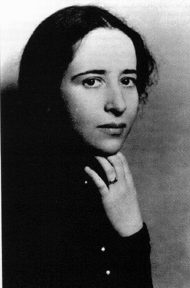My friend and publisher Oscar van Gelderen alerted me to this article by Laura Miller on irony, Arendt and Wallace. The article consists mainly of a conversation between Miller the German journalist Marie Luise Knott who wrote a book on Arendt and irony.
Here are some excerpts from what Knott told Laura Miller:
‘In my book I wanted to deal with a subject that nobody had worked on: How and under which conditions did Arendt “change her mind.” I was not so much interested in whether she was right or not. Karl Jaspers, one of her teachers, calls her work — especially the Eichmann book – a defiance of “life-sustaining lies.” We all (including Arendt) live with life-sustaining lies, both private ones and public ones.’
This seems to me the precondition for any self-reflection: the acknowledgment how many life-sustaining lies we tell us. Of course the word “life-sustaining” may be a source of cynicism. Perhaps it’s better to talk about “pious lies”.
Knott again: ‘Wallace has a point in stating that irony can “make viewers feel smarter than the naïve public, and to flatter them into continued watching.” That is a totally different phenomenon and one we have here in Germany too. This type of irony is keeping you at a distance from what is going on. Media irony is the result of a society, where people are thought of as consumers, while Arendt’s irony is the contrary. She wants to get closer to reality by overcoming her own impediments of thinking.’
So we have two kinds of irony, the irony that is used to detach yourself from reality, and the irony that is a tool to enter reality, or to be more precise, to enter the moral collapse. Irony at its best is a controlled collapse.
(Read the article here.)
